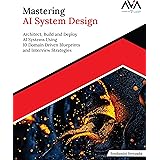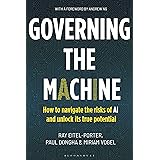📘 Looking for the Best AI Books in India?
Check our updated list of Best Selling AI Books in India (2026)
What is artificial intelligence : It is no longer just a buzzword or a concept from science-fiction movies. In 2026, AI has quietly become a part of our everyday lives — from the way we search the internet to how businesses operate, students learn, and creators work.
If you’ve ever wondered what AI really is, how it works, and why everyone is talking about it, this guide will explain everything in simple, human language.
What Is Artificial Intelligence? (Explained Simply)
Artificial Intelligence, commonly called AI, refers to the ability of machines or software to think, learn, and make decisions in a way that feels human-like.
In simple words:
AI allows computers to learn from data and experience instead of following only fixed instructions.
For example:
- When Google understands what you’re searching for
- When YouTube suggests videos you actually like
- When ChatGPT answers your questions in natural language
That’s AI working behind the scenes.
AI doesn’t mean robots taking over the world. Most AI systems today are designed to assist humans, not replace them.
How Does AI Actually Work?
AI works by combining data, algorithms, and computing power.
Here’s a beginner-friendly breakdown:
- Data
AI learns from large amounts of information — text, images, videos, numbers, or audio. - Learning Patterns
Using machine learning, AI finds patterns in that data.
For example, learning how words form sentences or how faces look in photos. - Making Decisions
Once trained, AI can:- Answer questions
- Predict outcomes
- Recognize objects
- Suggest solutions
- Getting Better Over Time
The more data AI receives, the better it usually becomes.
Think of AI like a student — the more it studies and practices, the smarter it gets.
Types of Artificial Intelligence (As of 2026)
1. Narrow AI (Weak AI)
This is the only type of AI we currently use in real life.
Narrow AI is designed to do one specific task very well, such as:
- Voice assistants (Alexa, Siri)
- Chatbots (ChatGPT, Gemini)
- Image recognition
- Recommendation systems
It may look intelligent, but it doesn’t truly “understand” things the way humans do.
2. Artificial General Intelligence (AGI)
AGI refers to AI that could think and learn like a human across multiple tasks.
As of 2026:
- AGI does not fully exist yet
- Researchers are getting closer, but true human-level intelligence is still a work in progress
Many experts believe AGI will arrive gradually, not suddenly.
3. Artificial Superintelligence (ASI)
ASI is a theoretical concept where AI becomes smarter than humans in every way.
Right now:
- ASI exists only in discussions and research papers
- It’s not something we interact with today
A Short History of AI (Quick Overview)
AI didn’t appear overnight. Its journey spans decades:
- 1950s – Alan Turing asked: “Can machines think?”
- 1956 – The term “Artificial Intelligence” was officially introduced
- 1997 – A computer defeated a world chess champion
- 2010–2020 – AI entered smartphones, apps, and online services
- 2023–2026 – Generative AI changed how people write, code, design, and learn
Today, AI is no longer experimental — it’s mainstream.
Real-Life Applications of AI in 2026
AI is being used across almost every industry.
Everyday Life
- Smart search engines
- Voice typing and translation
- Personalized content on apps
Education
- AI study assistants
- Personalized learning platforms
- Automated grading and feedback
Healthcare
- Medical image analysis
- Disease prediction
- Virtual health assistants
Business & Work
- Customer support chatbots
- Marketing automation
- Data analysis and forecasting
Transportation
- Navigation apps
- Traffic prediction
- Driver-assistance systems
AI is not replacing humans — it’s changing how work is done.
AI in India: Why It Matters
India is rapidly adopting AI across sectors such as:
- Education
- Agriculture
- Healthcare
- Startups and IT services
Government initiatives and private companies are investing heavily in AI skills, making it a valuable career path for students and professionals in India.
Benefits of Artificial Intelligence
AI offers many advantages, including:
- Faster decision-making
- Reduced human error
- Time savings through automation
- Better personalization
- Improved productivity
Used responsibly, AI can help people focus on creative and meaningful work.
Challenges and Concerns Around AI
Despite its benefits, AI also raises important concerns:
- Data privacy – AI systems rely heavily on user data
- Bias – Poor data can lead to unfair outcomes
- Job transformation – Some roles may change or disappear
- Misuse – AI can be misused if not regulated properly
This is why ethical AI development is a major topic in 2026.
The Future of AI (What to Expect Next)
Looking ahead:
- AI will become more assistive and collaborative
- Human-AI teamwork will increase
- Regulation and responsible use will play a bigger role
- AI literacy will become an essential skill
Instead of fearing AI, learning how to use it wisely will be the key.
Final Thoughts
Artificial Intelligence is not magic, and it’s not a threat by default. It’s a powerful technology shaped by how humans choose to use it.
In 2026, understanding AI is no longer optional — it’s a basic digital skill. Whether you’re a student, creator, business owner, or curious reader, knowing what AI is and how it works puts you one step ahead.
Also read : Artificial Intelligence Tools: How They Are Shaping Creativity




